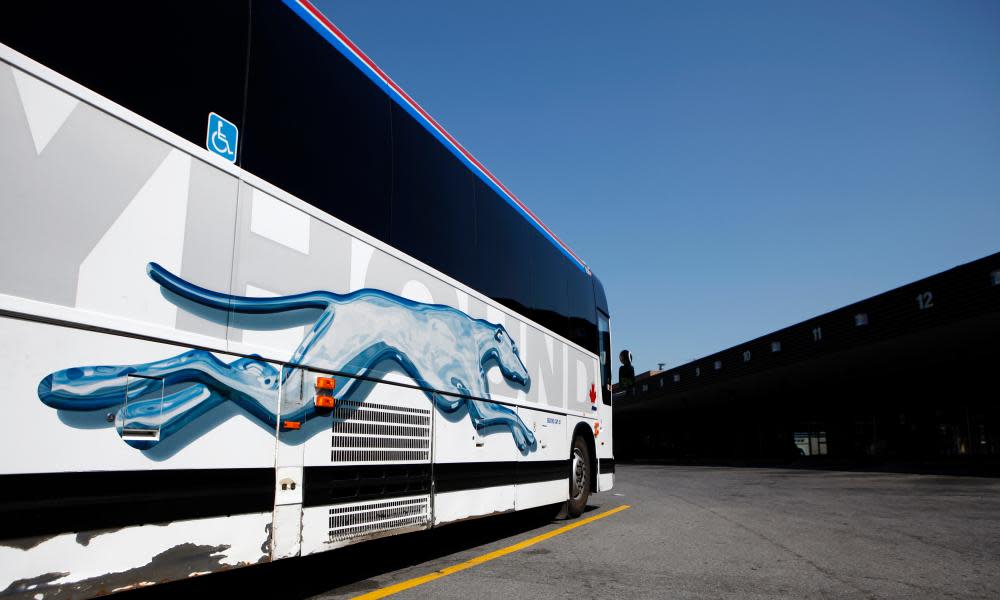Greyhound Canada to end intercity routes in blow to rural communities

Greyhound Canada will permanently cease its intercity bus operations, the company has announced, as losses mounted and ridership plunged from the effects of coronavirus pandemic. News of the company’s exit comes as a heavy blow to rural communities across the country, which have relied on the company’s services for nearly a century.
“It’s been a very tough decision and one we’ve taken with a heavy heart,” Stuart Kendrick, senior vice-president of Greyhound Canada, told the Canadian Press on Thursday. “It’s been a lifeline for many Canadians for more than 90 years. This will have a massive impact.”
Without a nationalized bus network, Canadians in rural swaths of the country have used Greyhound, owned by the UK-based FirstGroup, as a critical intercity transit service.
But the bus line has struggled with declining revenues in recent years, as more people shift to personal automobiles. It has also increasingly found itself competing against VIA Rail, the country’s national rail service, as well as subsidized transit systems and new competitors.
Related: Decline of Greyhound service mirrors rural Canada's plight
Greyhound foreshadowed its demise in 2018, announcing it would be discontinuing its operations in western Canada amid mounting losses and dwindling ridership.
Greyhound’s permanent exit from Canada will hit Indigenous communities hard, many of which have long relied on the intercity bus network as both a necessary link to neighbouring cities and towns and a safe way to travel. Canada’s National Inquiry into Murdered and Missing Indigenous Women and Girls called for increased access to safe intercity transit as one of its recommendations.
The bus service has also been critical for women fleeing domestic abuse.
“[Women at risk] could perhaps be pushed into more vulnerable kinds of situations where they might hitchhike – and I have seen that happen – therefore putting them at greater risk, not only of violence, but potentially homicide as well,” Josie Nepinak of the Awo Taan Healing Lodge told the Canadian Press in 2018, following news that the company was ending its western operations.
Last May, as the coronavirus pandemic halted travel throughout the country, Greyhound Canada announced it would suspend its operations, laying off 260 employees.
“Our service is reliant on the fare box – we are not able to sustain operations with a significant reduction in ridership and the corresponding revenue loss,” the company said in a statement on Thursday, adding that it had approached the government for aid – but called the offers “negligible”.
The company’s American affiliate, Greyhound Lines Inc, will continue to operate cross-border routes once the Canada-United States border reopens.
“This could have been avoided if our federal and provincial governments actually cared about those in remote communities who relied on intercity bus service,” said John Di Nino, president of the Canadian branch of the Amalgamated Transit Union. “The closure of intercity transit today has torn a hole in the fabric of our country, which will take decades to repair.”

